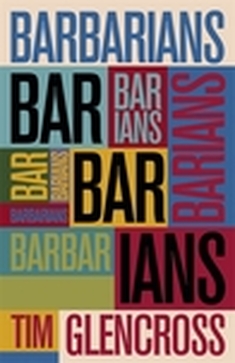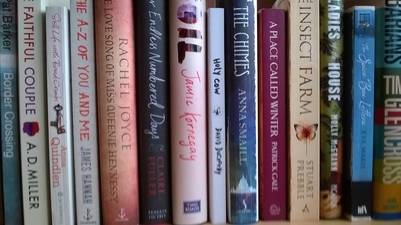
Tim Glencross interweaves the lives of his characters (there’s even a walk-on part for a clinical psychologist on page 145) along with a host of sociopolitical and cultural references to produce a satirical cat’s cradle of a novel. Unravelling all the interrelationships within this review is unfortunately beyond me, although it doesn’t come across as confusing on the page, rather beautifully reflects the nepotism and old-boy-network of society’s elite, along with the unfortunate human tendency to prioritise our own immediate concerns over world affairs, as exemplified by Buzzy picking up a newspaper on the Tube (p116-7):
She finds herself oddly interested in the report of an Icelandic bank announcing its intention to sue the UK government for using anti-terror legislation to seize the bank’s assets. In another article, important-sounding experts are criticising the government’s economic policies … Although the sentences swim a little and she finds she has to re-read each paragraph, the tumultuous financial situation, which she has mostly left for other people to worry about, makes an impression on her. Fiscal profligacy sounds as undesirable as it does irresponsible, especially when she thinks of her father, worried about the depressed housing market and people’s new reluctance to purchase furniture on credit … Alec Merton is quoted in the piece … The words seem reassuring – as from the inset photo does Merton himself, quite handsome in a boring kind of way – though she wonders if they were in fact drafted by Afua, who has never learned economics or worked in business.
Having received the novel courtesy of the Curtis Brown book group, I took the opportunity to ask the author about its relationship to other novels that show up the ills of their time through a broad sweep of characters (my question in bold type, the authors answer in italics).
Barbarians references Middlemarch and Vanity Fair and had me thinking of Alan Hollinghurst’s The Line of Beauty, what would you say were the novel’s main influences?
Hello Anne, thank you for your question. Last year I did an event with my former English teacher. He told me he was surprised when he read Barbarians because at school we would talk about American writers like John Updike and Cormac McCarthy. By contrast, this novel seemed to him very English - he mentioned Waugh and EM Forster and Hollinghurst, as you did.
Sigmund Freud famously declared that 'anatomy is destiny', but perhaps when it comes to fiction-writing, for me at least, it is more the case nationality is destiny! I do admire the comic English stylists mentioned above - Edward St Aubyn is another among contemporary writers.
What I like about Forster is particular is that the tone is, say, Howard's End or Room with a View seems gently and fairly innocently dry, but underneath it there's a ruthlessness to his writing which can take the reader by surprise.
I haven’t been able to follow this up with Tim Glencross, but two things strike me: how cool to do an event with your former English teacher (perhaps I should scour the retirement homes for mine, or perhaps my short story, Kinky Norm, suggests I shouldn’t); I did wonder about the Englishness of the novel as I was reading (and I also thought of Evelyn Waugh as mentioned by the teacher) and I’m glad he’s flagged it here – as we English are in a minority among my regular commenters, perhaps you can tell me whether that would be a turn-on or turn-off in relation to Barbarians?

Thanks to all my readers who have followed or dipped into my reviews this month – hope those TBR piles and ready to topple. Here’s a reminder of the fourteen novels covered in March – if you fancy catching up on any you’ve missed, just click on the image.





















 RSS Feed
RSS Feed





















